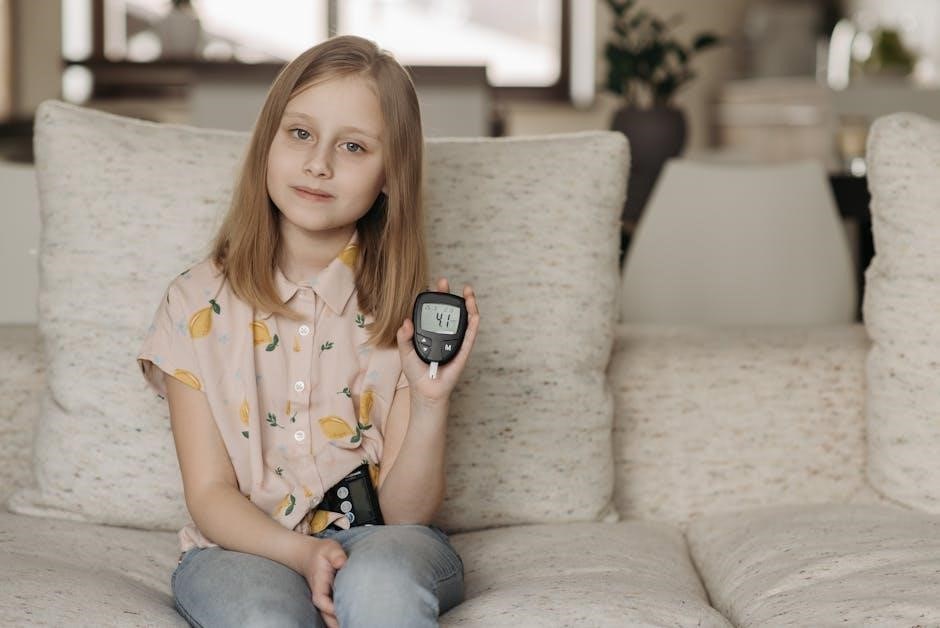Non-medical home care forms are essential tools for assessing needs, creating care plans, and ensuring compliance with regulations. They guide caregivers in providing personalized support, improving quality of life for clients while maintaining legal standards and documentation requirements.
Definition and Purpose of Non-Medical Home Care Forms
Non-medical home care forms are standardized documents designed to assess client needs, outline care plans, and ensure regulatory compliance. They help providers deliver personalized support, documenting daily living requirements, mobility, and preferences. These forms streamline communication between caregivers and clients, ensuring tailored care while maintaining legal and operational standards effectively.
Importance of Using Standardized Forms in Home Care
Standardized forms ensure consistency, reduce errors, and maintain compliance with legal requirements. They provide clear guidelines for caregivers, streamline documentation, and improve client outcomes. Using these forms enhances communication, organizes care plans, and ensures that client needs are met efficiently. They also facilitate record-keeping and reporting, making home care operations more professional and reliable for both providers and clients alike.

Key Elements of Non-Medical Home Care Forms
Non-medical home care forms include assessment sections, detailed client preferences, and legal requirements; They ensure personalized care plans, compliance with regulations, and efficient documentation for caregivers and agencies.
Assessment and Evaluation Sections
Assessment and evaluation sections in non-medical home care forms are designed to gather detailed information about a client’s daily living needs, mobility, and personal preferences. These sections help caregivers create tailored care plans, ensuring services are effective and personalized. They also guide caregivers in understanding specific requirements, promoting independence, and improving overall quality of life for clients in their home environment.
Detailed Information on Daily Living Needs and Preferences
Non-medical home care forms include sections for documenting daily living needs and preferences, such as mobility assistance, nutritional requirements, and personal care routines. These details ensure caregivers can provide tailored support, respecting individual habits and lifestyles. This personalized approach enhances client comfort and independence, making care more effective and aligned with their specific circumstances and wishes.
Legal and Regulatory Requirements
Non-medical home care forms must comply with legal and regulatory standards, ensuring agencies operate within established guidelines. These forms often include sections for licensure applications, physical assessments, and service agreements. Compliance with state and federal regulations is crucial for maintaining accreditation and avoiding penalties. Proper documentation helps agencies demonstrate adherence to legal requirements, safeguarding both clients and providers.
Where to Download Non-Medical Home Care Forms
Official government sources like DOH websites and reputable template platforms offer downloadable non-medical home care forms in PDF format, ensuring accessibility and compliance with regulations.
Official Government Sources (e.g., DOH Websites)
Official government sources, such as Department of Health (DOH) websites, provide reliable access to non-medical home care forms in PDF format. These platforms offer free downloads of essential documents, including home care assessment forms, service agreement templates, and license applications. The DOH ensures forms are updated and compliant with legal standards, making them a trusted resource for agencies and caregivers to streamline processes effectively while maintaining regulatory adherence.
Reputable Template Platforms and Marketplaces
Reputable platforms offer a wide range of non-medical home care forms in PDF and other formats, providing customizable templates for assessments, service agreements, and client intake. These marketplaces ensure forms are professional, easy to edit, and legally compliant. They cater to various needs, offering unique and tailored solutions for caregivers and agencies, making the process efficient and comprehensive for all users.
How to Fill Out Non-Medical Home Care Forms
Filling out non-medical home care forms requires careful attention to detail. Use online tools to edit and sign forms, ensuring accuracy and compliance with requirements.
Step-by-Step Instructions for Completion
Start by gathering all necessary client details. Complete each section systematically, beginning with personal information, followed by assessment data, and care requirements. Ensure all fields are filled accurately, using fillable PDFs for ease. Review the form for completeness and sign digitally. Verify compliance with legal standards before submission. Always save a copy for records.
Tools and Software for Editing and Signing Forms
Utilize tools like Adobe Acrobat for editing PDFs and DocuSign or SignNow for digital signatures. These platforms offer robust features for filling, signing, and sharing forms securely. Many tools support fillable fields, text insertion, and seamless integration with popular formats. They enhance efficiency, ensuring forms are completed accurately and compliantly while maintaining professionalism in home care documentation and client interactions.

Common Types of Non-Medical Home Care Forms
Key forms include assessment templates, service agreements, and client intake documents. These tools help evaluate needs, outline care plans, and establish clear expectations for home care services.
Home Care Assessment Forms
Home care assessment forms are crucial for evaluating an individual’s needs, mobility, and preferences. They guide caregivers in developing personalized care plans, ensuring tailored support. Available as PDFs, these forms often include sections for daily living requirements, medical conditions, and specific care needs. They are essential for agencies to assess client requirements and create effective care strategies, ensuring high-quality service delivery.
Service Agreement Templates
Service agreement templates outline the scope, terms, and conditions of non-medical home care. They detail services provided, payment terms, and responsibilities of both the agency and client. These documents ensure clarity and mutual understanding, protecting both parties. Available as editable PDFs, they can be customized to fit specific needs, ensuring legal compliance and a clear framework for care delivery.
Client Intake and Application Forms
Client intake and application forms gather essential information about individuals seeking non-medical home care. They include details on medical history, daily living needs, and personal preferences. These forms help agencies assess requirements and create tailored care plans. Available as downloadable PDFs, they streamline the admission process, ensuring accurate and comprehensive client data collection for efficient care coordination and service delivery.

Best Practices for Using Non-Medical Home Care Forms
Ensure accuracy, completeness, and compliance when using non-medical home care forms. Regularly review and update documents to maintain relevance and adherence to legal standards.
Ensuring Accuracy and Completeness
Accuracy and completeness are critical when filling out non-medical home care forms. Use official templates from reliable sources like DOH websites or reputable platforms to ensure compliance. Carefully review each section, such as daily living needs and preferences, to avoid missing vital information. Double-check all details before submission to maintain professionalism and legal standards. This ensures clear communication and effective care planning.
- Use official templates for consistency and compliance.
- Review and verify all information thoroughly.
- Ensure all sections are filled out completely.
Staying Updated with Regulatory Changes
Regularly check official DOH websites and subscribe to updates to stay informed about regulatory changes affecting non-medical home care forms. Compliance with new requirements ensures proper licensing and avoids legal issues. Stay proactive by reviewing updated templates and guidelines to maintain accurate documentation and high-quality care standards. This helps agencies remain compliant and provide reliable services to clients.
- Monitor official sources for updates regularly.
- Adapt to changes promptly to avoid compliance issues.
- Review updated templates and guidelines thoroughly.
Challenges and Solutions in Using Non-Medical Home Care Forms
Challenges include incomplete forms and errors. Solutions involve using digital tools and training staff to streamline processes and ensure accuracy, improving overall efficiency and compliance.
Common Mistakes to Avoid
Common mistakes include incomplete form filling, missing signatures, and outdated templates. Ensure accuracy by using digital tools, double-checking information, and adhering to regulatory updates to avoid errors and legal issues.
Streamlining the Process with Digital Tools
Digital tools simplify form management by offering fillable fields, digital signatures, and cloud storage. They enable real-time collaboration, reduce errors, and enhance accessibility. Using online platforms ensures forms are up-to-date and easily sharable, improving efficiency and compliance in home care services.

Future Trends in Non-Medical Home Care Forms
Future trends include AI-driven form automation, real-time data syncing, and enhanced customization, ensuring streamlined processes and improved care delivery through advanced digital solutions.
Digitalization and Automation of Forms
Digitalization and automation are transforming non-medical home care forms, enabling faster completion and reducing errors. AI-driven tools now offer real-time data syncing, automated fillable fields, and electronic signatures, enhancing efficiency. Platforms provide robust editing capabilities, allowing users to customize and manage forms online. This shift streamlines processes, improves accuracy, and ensures compliance with regulatory requirements, making care delivery more seamless and client-focused.
Increasing Focus on Customization and Accessibility
There is a growing emphasis on tailoring non-medical home care forms to meet individual client needs, ensuring accessibility for diverse populations. Customizable templates now include detailed sections for daily living preferences, mobility, and personal care requirements. Enhanced digital tools allow for easy editing and adaptation, ensuring forms are user-friendly and inclusive. This focus improves care quality, client satisfaction, and compliance with regulatory standards.
Non-medical home care forms are vital for ensuring personalized, compliant, and high-quality care. Their use streamlines processes, enhances client satisfaction, and supports caregivers in delivering effective support.
Final Thoughts on the Importance of Non-Medical Home Care Forms
Non-medical home care forms are indispensable for ensuring efficient, personalized, and compliant care delivery. They streamline processes, enhance client satisfaction, and provide clear guidelines for caregivers. By using these forms, agencies can maintain high standards, reduce errors, and focus on delivering tailored support, ultimately improving the quality of life for individuals in need of non-medical home care services.
Encouragement to Utilize Available Resources
Leveraging readily available non-medical home care forms PDFs can significantly enhance your caregiving processes. These resources provide structured templates for assessments, agreements, and client intake, ensuring compliance and efficiency. By utilizing official government sources and reputable platforms, you can access customizable forms tailored to your needs, streamlining operations and improving care quality.
